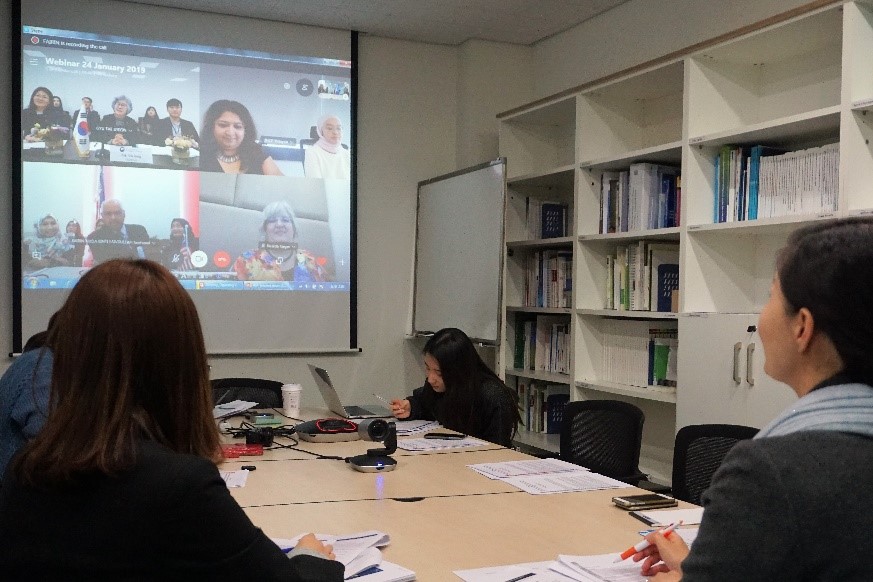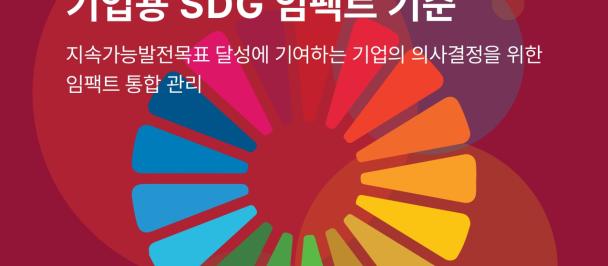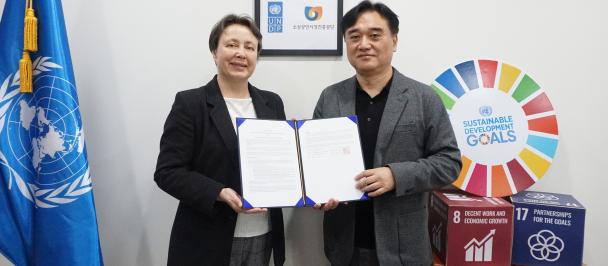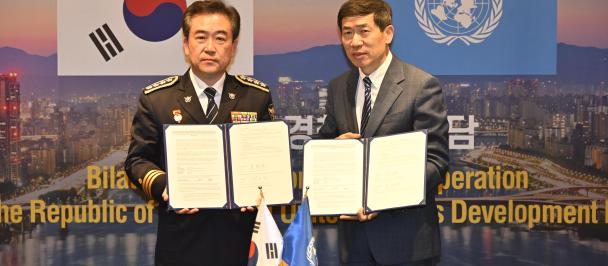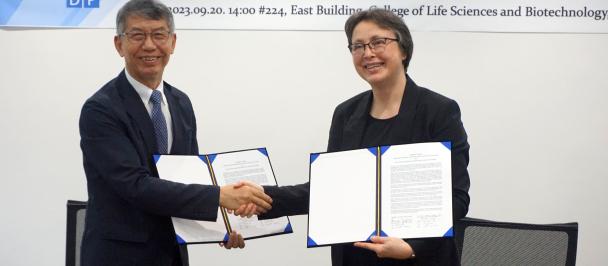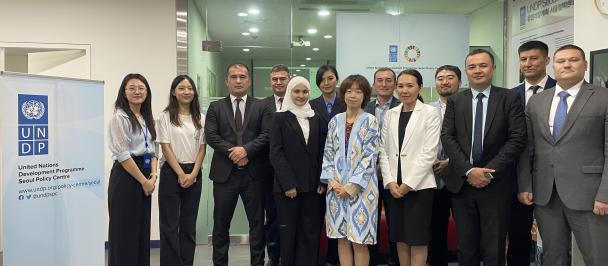A web-based seminar was organized on 24 January 2019 as part of the UNDP Seoul Policy Centre (USPC)’s Development Solutions Partnership (DSP) on sharing Korea’s Anti-Corruption Initiative Assessment (AIA) with Malaysia. UNDP Malaysia, with the support of USPC, is launching a project aimed at supporting Malaysia’s establishment of an AIA-like corruption prevention mechanism. Korea’s Anti-Corruption and Civil Rights Commission (ACRC), Malaysia’s National Centre for Governance, Integrity and Anti-Corruption (GIACC), USPC, and UNDP Malaysia participated in this kick-starter meeting, which allowed government counterparts and partnering institutions in the two countries to meet and discuss the programme’s objectives and priorities.
The AIA, which the ACRC annually conducts on all public organizations, is used to examine and incentivize anti-corruption and integrity activities promoted by public organizations. Since 2002, ACRC has been conducting AIAs on public institutions to evaluate their anti-corruption efforts against pre-specified criteria and indicators. By doing so, the AIA has promoted integrity within the public sector by providing clear and periodic guidance and incentives for behavioural change. The ACRC encourages further anti-corruption efforts in public administration by publishing and making the results of AIA available to the public.
Learning the AIA’s mechanism of self-reporting and the process in which ACRC ensures effectiveness of AIA indicators is timely for Malaysia. Malaysia has shown strong interest and will in tackling corruption within the public administration system under the new government. In fact, the Government of Malaysia is currently initiating key elements to improve anti-corruption and integrity efforts, while the newly established GIACC is leading these anti-corruption initiatives with UNDP Malaysia as its local partner.
This cooperative partnership will take place through USPC’s DSP. DSPs are collaborative programmes that place value on the sharing and exchanging of knowledge and experiences to help build effective tools tailored to the specific national context of each country. “The partnership does not seek to ‘cut and paste’ Korea’s experience, but to share that experience to support contextualization of the corruption-prevention mechanism,” said Artemy Izmestiev, Director a.i. of USPC.
The webinar included key members from each organization, including Ms. Un Jong Pak (Chairperson of ACRC), Dr. Anis Yusal Yusoff (Deputy Director-General of GIACC), and Ms. Ricarda Rieger (Resident Representative a.i. of UNDP Malaysia), who all gave opening remarks thanking and congratulating the participants on the official launch of this partnership.
ACRC presented the framework and impact of Korea’s AIA, while GIACC provided an overview of Malaysia’s anti-corruption priorities and its plans for utilizing ACRC’s AIA. Dr. Yusoff commented that the GIACC is particularly looking forward to learning about effective indicator-monitoring mechanisms to ensure Malaysia reaches its goal in becoming a corrupt-free country. “The AIA approach’s strength lies in the fact that it is one, central coordinating body that collects and collates data and further monitors what needs to be done,” said Dr. Yusoff.
It is envisaged that further DSP activities will be organized in the future to discuss both political and technical issues pertaining to the creation of a whole-of-government corruption mitigation and accountability mechanism, to learn about Korean practices and challenges, and to discuss institutional issues regarding setting up an AIA-like mechanism in Malaysia in further detail.
USPC’s Development Solutions Partnership (DSP) is a programmatic approach to share Korea’s innovative policy tools with other countries through the UNDP’s global network. In the period of 2015-2018, USPC has implemented a total of three full-fledged DSP projects on anti-corruption in Vietnam, Myanmar, and Kosovo, which share ACRC’s effective anti-corruption policy tools.

 Locations
Locations